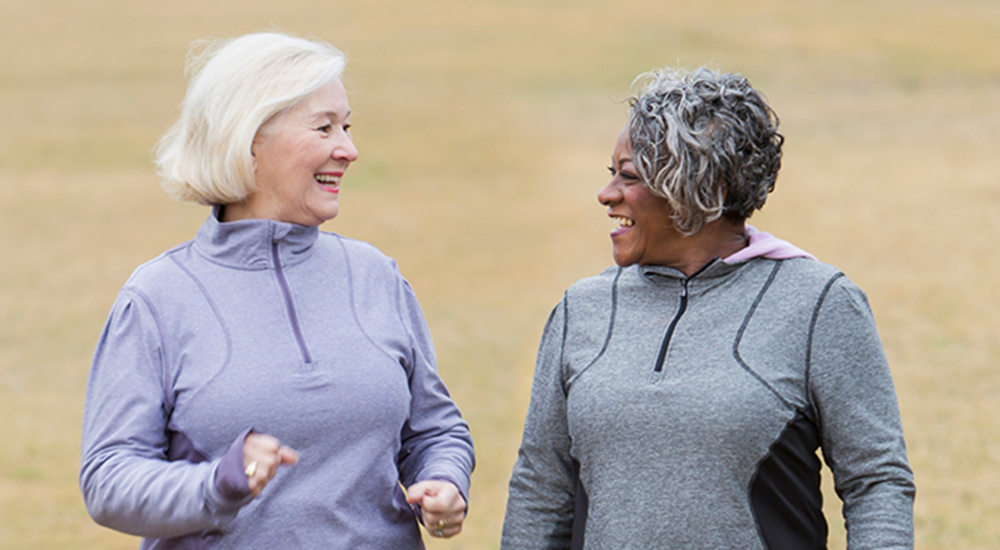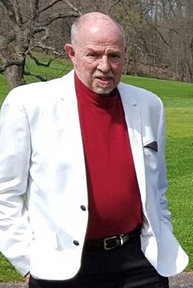When a fellow Vietnam Veteran needed help, Gary Haslop didn’t hesitate to step up. Without specific training and with little understanding of the impact his decision would have on his life, Gary became a caregiver for a church acquaintance he had known for a few years. Despite the “ups and downs,” their caregiving relationship lasted three years and Gary found his life to be enriched in ways he couldn’t have imagined.
“Deciding to be a caregiver was an easy choice. This person needed help and I felt I had the skills to help him,” said Haslop. “With my training as a hospital chaplain, I felt I was taking on a role that was natural.”
As a caregiver, Gary dispensed medications and fixed meals. He also performed basic housework and attended medical appointments as an integrated member of the Veteran’s care team. He found the physical demands of the job difficult at times. However, he was most unprepared for the difficulty of the emotional demands of the job.
As the health of his care receiver deteriorated, Gary found himself in an abusive situation with too little support and divided loyalties. He wanted to be there for his care receiver, but he also needed to protect himself.
Need to know when they are in over their head
“Caregiving is a way of investing yourself in someone else and you really have to be committed,” said Gary. “Caregivers also need to be able to assess when they are in over their head and seek help.”
Seeking help is something he wishes he had done differently. He relied primarily on a support group and his clergy for the emotional support critical to a caregiver’s success. He admits he didn’t think very much about the resources available to caregivers through VA. Once or twice he may have reached out to a VA social worker who recommended he watch a video series on post-traumatic stress disorder.
Since his experience, Gary is on a mission. He has vowed to share his knowledge and to emotionally support other caregivers as a VA Caregiver Peer Support Mentor. Over six years, he has helped as many as 10 caregivers, all of whom have become like family to him.
“Caregivers should not feel that they are alone. Others have gone through the same things they are going through,” said Gary. “As mentors we share their journey and benefit mutually through the experience.”
Most of the time, the mentoring pairs have traded confidences over the phone and in emails and letters. But VA is starting to match caregivers in the same geographic locations to allow them to meet in person more easily. Gary has only met one of his mentees in person but counts them all as dear friends.
Program open to any caregiver of an enrolled Veteran
VA’s Caregiver Peer Support Mentoring is open to any caregiver of a Veteran enrolled in VA health care. The initial program commitment is six months, but shorter periods may be possible. The program was developed to strengthen relationships between caregivers and to provide an opportunity for networking. It empowers caregivers to help one another by receiving guidance and sharing experiences, wisdom, skills and passion with other caregivers.
For information about resources and services available to support you in your caregiving role and to become involved in the VA Caregiver Peer Support Mentoring Program, contact a Caregiver Support Coordinator at your local VA medical Center.
You can get support through VA’s Caregiver Support Line (CSL) at 1-855-260-3274. CSL connects caregivers with trained counselors. Caregivers also can participate in monthly group sessions and learn about resources within VA and the community. The CSL is available Monday through Friday from 8 a.m. to 8 p.m.
Topics in this story
More Stories
The Medical Foster Home program offers Veterans an alternative to nursing homes.
Watch the Under Secretary for Health and a panel of experts discuss VA Health Connect tele-emergency care.
The 2024 National Veteran Suicide Prevention Annual Report provides the foundation for VA’s suicide prevention programs and initiatives.







